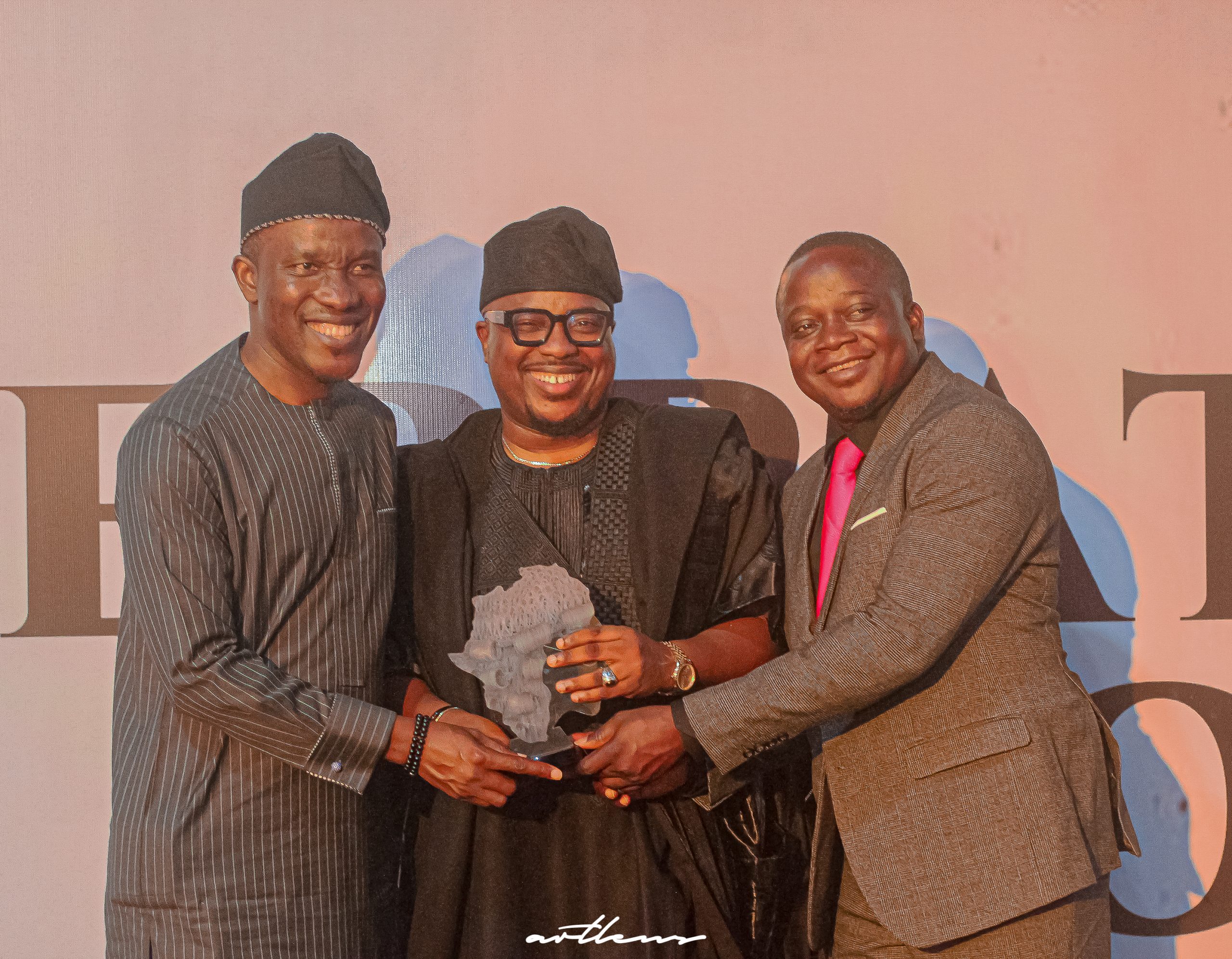
by Legalnaija | Jan 4, 2026 | Blawg
As lawyers across Nigeria prepare to return to work on Monday, 5th January, the start of a new year is always a good time to reflect on how we can remain relevant in a rapidly evolving legal landscape. The profession is changing — technology, client expectations, and global trends are reshaping the way we practice. Staying ahead requires intentional effort.
Here are 7 things lawyers should focus on in 2026:
- Embrace Legal Tech
Digital tools are no longer optional. From e-filing systems to AI-assisted research, lawyers who leverage technology will deliver faster and more efficient services.
- Sharpen Commercial Awareness
Clients expect lawyers to understand not just the law, but the business context. Stay informed about industry trends, economic policies, and market shifts.
- Invest in Continuous Learning
Laws evolve, and so must we. Attend trainings, webinars, and conferences. Platforms like Legalnaija provide resources that keep you updated on Nigerian legal developments.
- Build a Strong Online Presence
Thought leadership matters. Share insights on LinkedIn, publish articles, and engage in online discussions. Visibility builds credibility.
- Prioritize Client-Centric Practice
Beyond technical expertise, clients value responsiveness, empathy, and clear communication. Make client satisfaction a cornerstone of your practice.
- Network Strategically
Relationships remain the lifeblood of the profession. Connect with peers, mentors, and industry leaders. Collaborations often open doors to new opportunities.
- Adapt to Global Standards
Nigerian lawyers increasingly operate in a globalized market. Familiarize yourself with international best practices, cross-border transactions, and comparative legal systems.
2026 will reward lawyers who are proactive, adaptable, and innovative. By embracing these strategies, you can position yourself not just to survive, but to thrive in the evolving legal profession.
For more insights and resources tailored to Nigerian lawyers, follow Legalnaija — your trusted companion for staying informed and relevant in today’s legal world.

by Legalnaija | Jan 2, 2026 | Blawg

Hello Legalnaija Family,
Getting a message from a potential client through the Legalnaija Directory is always exciting — but how you respond can make all the difference between a one‑off chat and a lasting relationship. Here are some simple but powerful tips to keep in mind:
Best Ways To Respond To Client Inquiries
- Reply quickly: A prompt response shows professionalism and builds trust. Even if you don’t have all the answers yet, acknowledge the inquiry.
- Be clear and concise: Clients appreciate straightforward communication. Avoid too much jargon — explain things in plain language.
- Show empathy: Remember, most people reach out because they have a pressing issue. A little understanding goes a long way.
- Offer value upfront: Share a quick insight, a next step, or a resource. It positions you as helpful and knowledgeable.
- Set expectations: Let them know what happens next — whether it’s a consultation, a document review, or a follow‑up call.
- Stay professional: Keep your tone warm but professional. You’re building trust from the very first message.
Bonus Tip
Always end your response with an invitation to continue the conversation — e.g., “Would you like us to schedule a quick call to discuss this further?” That small nudge can turn an inquiry into a real engagement.
At Legalnaija, we want every inquiry to be an opportunity for you to shine. The more responsive and approachable you are, the more likely clients are to choose you over someone else.
Keep building those connections, and let’s keep raising the bar for legal practice in Nigeria.
Warm regards,
The Legalnaija Team
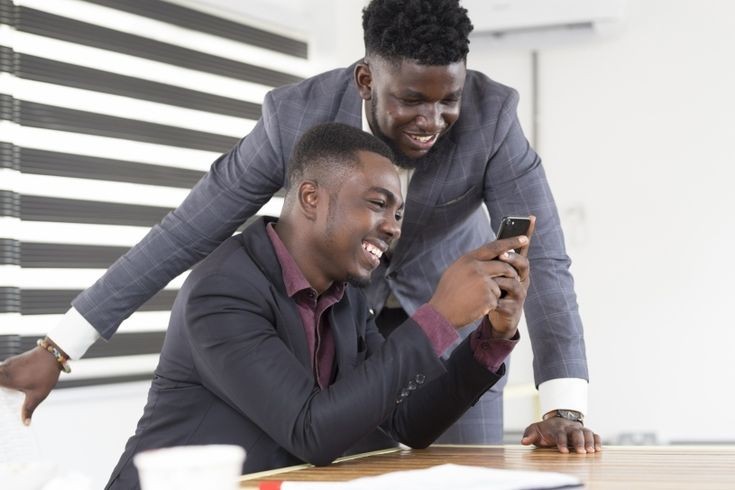
by Legalnaija | Dec 26, 2025 | Blawg, Directory
🎉 Holiday Gift to Lawyers: Free 1-Year Subscription to the Legalnaija Director
The holiday season is here, and Legalnaija is spreading cheer in the legal community with an exciting announcement! For a limited time, Lawyers and Law Firms can subscribe to the Legalnaija Directory absolutely FREE for one year.
Why Join the Legalnaija Directory?
At Legalnaija, our mission is simple yet powerful:
– We believe every citizen should be able to easily find and connect with qualified lawyers and legal services.
– By bridging the gap between citizens and legal practitioners, we strengthen trust in the justice system and uphold the rule of law.
– The Directory is a platform where lawyers and law firms can showcase their expertise, practice areas, and contact information to thousands of potential clients.
The Holiday Offer
– Free 1-Year Subscription: No fees, no hidden charges—just a full year of visibility and connection.
– Exclusive to the Holidays: This special offer is available only during the festive season.
Benefits of Being Listed
– Reach new clients searching for legal help.
– Enhance your professional visibility online.
– Be part of a trusted platform dedicated to legal education and access to justice.
How to Get Started
Subscribing is quick and easy. Visit the directory here www.legalnaija.com
If you encounter any issues or have questions, simply send us an email at hello@legalnaija.com and our team will be happy to assist.
Legalnaija Team

by Legalnaija | Dec 19, 2025 | Blawg
The Legalnaija Directory is more than just a list of names—it’s a bridge to trusted legal professionals across Nigeria. Whether you’re seeking advice on property transactions, corporate matters, or family issues, knowing how to connect and engage with lawyers effectively can make all the difference. Here’s a practical guide to help you navigate the platform and build meaningful professional relationships.
- Search Smart
The directory allows you to filter lawyers by practice area. Instead of scrolling endlessly, use these filters to zero in on professionals who specialize in your specific legal needs. This saves time and ensures you’re reaching the right person.
- Review Profiles Thoroughly
Each lawyer’s profile contains valuable information about their expertise, experience, and contact details. Take the time to read carefully before reaching out. Tailoring your message to their specialization shows respect and increases the likelihood of a positive response.
- Craft a Clear Introduction
When contacting a lawyer, introduce yourself properly. Briefly explain your legal issue and mention why you chose them. A concise, respectful message sets the tone for a productive conversation.
- Engage Professionally
Lawyers appreciate clarity. Avoid vague requests like “I need help.” Instead, outline your situation, your goals, and any deadlines. Professional communication builds trust and demonstrates seriousness.
- Schedule Consultations
Most lawyers prefer structured conversations. Politely ask about consultation availability and fees. Respecting their time shows you value their expertise and helps establish a professional relationship from the start.
- Prepare Beforehand
Before your consultation, gather all relevant documents, questions, and timelines. Being prepared makes the session more productive and signals that you are committed to resolving your issue.
- Follow Up Respectfully
If you don’t get a reply immediately, wait a few days before sending a polite reminder. Persistence is good, but professionalism is better. Avoid spamming or pressuring—lawyers are more likely to respond positively to courteous follow-ups.
- Build Long-Term Relationships
Don’t only reach out when you’re in trouble. Engage lawyers for insights, updates, or preventive advice. Building rapport today can save you stress tomorrow and ensures you have trusted professionals in your corner.
The Legalnaija Directory is designed to make connecting with lawyers simple and effective. By searching smart, communicating clearly, and engaging professionally, you can find the right lawyer for your journey and build lasting relationships that support your legal needs.
@Legalnaija

by Legalnaija | Dec 18, 2025 | Blawg
Legalnaija has officially announced that its flagship Lawyers Directory will now be free for all Nigerian lawyers and law firms. This landmark decision follows more than four years of building and sustaining the platform, which has grown to become one of the most visible online resources for connecting lawyers with clients in Nigeria.
A Platform Built for Accessibility
Launched over four years ago, the Legalnaija Lawyers Directory was designed to make lawyers more accessible, visible, and connected to clients. Today, the directory ranks at the top of Google search results for lawyers in Nigeria — a clear testament to its impact and reach.
By removing subscription barriers, Legalnaija is reaffirming its commitment to promoting access to justice and strengthening the Rule of Law through technology.
Effective immediately, lawyers and law firms can access the basic subscription to the Lawyers Directory completely free of charge.
Legalnaija invites lawyers across Nigeria to take advantage of this opportunity, get listed, and be part of a growing digital community that is reshaping access to justice. With over four years of resilience, growth, and innovation, the Lawyers Directory is set to continue empowering lawyers and clients alike for decades to come.

by Legalnaija | Dec 8, 2025 | Blawg
This Christmas, Gift Knowledge 📚⚖️
Looking for the perfect gift for your favorite lawyer, mentor, colleague, or even yourself?
🎁 Introducing the Legal Book Hamper — a curated basket of essential Nigerian law books covering everything from Commercial Law to Maritime Law, Tax, Procurement, and more.
Because nothing says “I value your mind” like a bundle of wisdom.
✅ Perfect for:
– Young and senior lawyers
– Law students
– Legal mentors
– Corporate counsel
Let’s make this season about growth, learning, and celebrating the brilliance of the legal profession.
Hampers available in 2 bundles:
✨ Dispute Resolution Expert Hamper https://legalnaija.com/product/litigation-and-adr-expert-bundle/
✨ Corporate Law Expert Hamper https://legalnaija.com/product/business-law-bundle/
📍 Order now from the Legalnaija Bookstore
📞 Call: 09029755663
🛒 Shop: Legalnaija.com/store
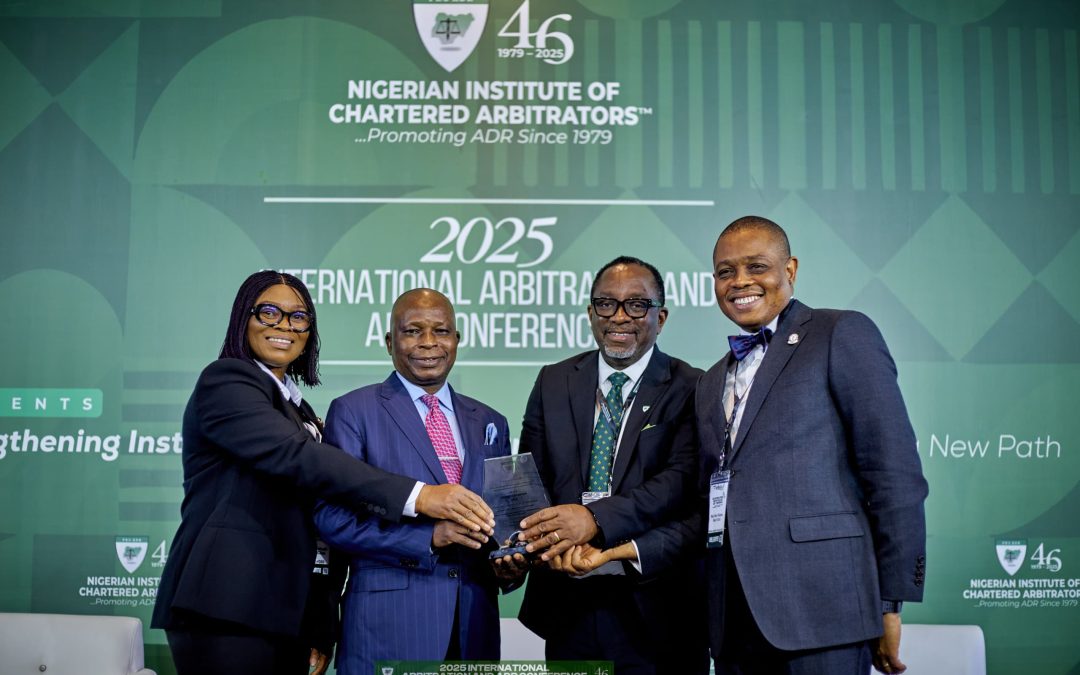
by Legalnaija | Dec 1, 2025 | Blawg
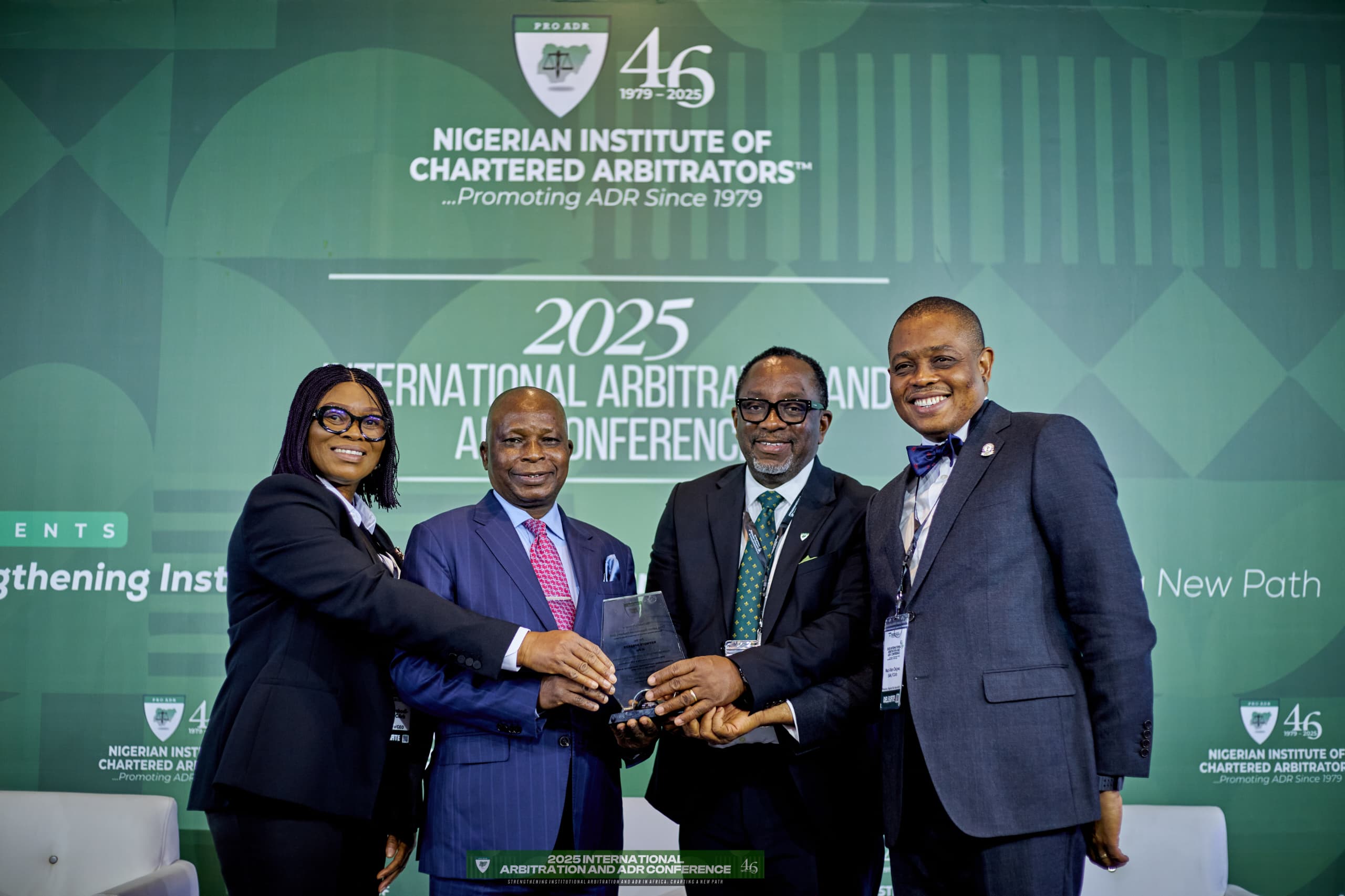
The Nigerian Institute of Chartered Arbitrators (NICArb) recently hosted its Annual Conference and Investiture, a landmark gathering that brought together leading voices in law, business, and dispute resolution. The two-day event underscored Africa’s growing role in shaping global arbitration and Alternative Dispute Resolution (ADR) practices.
Opening Highlights
The conference commenced with remarks from Professor Fabian Ajogwu, SAN, President of NICArb, followed by a virtual address from Mr. Wang Chengjie, Vice President of CIETAC. Lady Debbie Obodokwu, FCArb, representing the Annual Planning Committee, emphasized arbitration’s critical role in driving economic growth, sustaining societal stability, and strengthening Nigeria’s justice system.
Mazi Afam Osigwe, SAN, President of the Nigerian Bar Association, urged practitioners to champion ADR as a way to ease court congestion and retain arbitration work within Nigeria. The Attorney-General of the Federation, Prince Lateef Fagbemi, SAN, reinforced this message, describing ADR as an instrument of peace and justice. He revealed ongoing reforms to enhance enforcement, judicial support, and practice directions that will minimize adjournments and reinforce party autonomy.
Plenary Sessions – Day One
– Strengthening Institutional Arbitration in Africa: Panelists explored how African arbitral institutions can evolve from ad hoc practices to structured systems aligned with international standards, drawing lessons from OHADA, UNCITRAL, and the New York Convention.
– Energy, Oil & Gas Disputes: Discussions focused on leveraging arbitration to minimize project disruptions, ensure regulatory compliance, and build investor confidence in Nigeria’s energy sector.
– Construction & Infrastructure Arbitration: Experts examined recurring challenges such as delayed payments, financing gaps, and political risks, while stressing the need for reforms to enhance enforcement and cost efficiency.
– Banking, Finance & Fintech Disputes: With the rise of cross-border lending and digital finance, panelists highlighted the importance of robust institutions and modern legislative frameworks to position Africa as a hub for financial arbitration.
Plenary Sessions – Day Two
– Young Arbitrators and ADR Awareness: The “Early Riser Session” spotlighted the contributions of emerging practitioners, who are driving innovation and digital transformation in ADR. Panelists emphasized mentorship and inclusive appointment practices to empower young professionals.
– Institutional Mediation: Mrs. Achere Cole of the Lagos Multi-Door Courthouse showcased Nigeria’s mediation model, noting its replication across 21 states and its efficiency compared to litigation. Mr. Denis of AALCO Hong Kong added insights on Hong Kong’s mediation practices.
– Arbitration and the Courts: Judges and practitioners discussed the judiciary’s role in supporting arbitration, stressing the need for consistent precedents, judicial training, and legislative reforms.
– Ethics in Arbitration and ADR: The final session tackled ethical standards, digital transformation, and cybersecurity risks. Mrs. Caroline Etuk emphasized fairness and integrity as the bedrock of ADR, while Rémi Gerbay and Jonathan Barnes highlighted global ethics frameworks and the importance of secure digital solutions.
Key Takeaways
The NICArb Annual Conference reinforced several themes:
– The need for strong institutions and judicial support.
– Retaining disputes within Africa to strengthen local arbitration hubs.
– Empowering young professionals as catalysts for change.
– Mainstreaming mediation alongside arbitration.
– Upholding ethical standards and embracing technology responsibly.
Conclusion
With its rich discussions and forward-looking reforms, the NICArb Annual Conference affirmed that Africa is poised to become a thriving hub for domestic and international dispute resolution. By strengthening institutions, embracing innovation, and adhering to global best practices, Nigeria and the continent at large can chart a new path for arbitration and ADR.
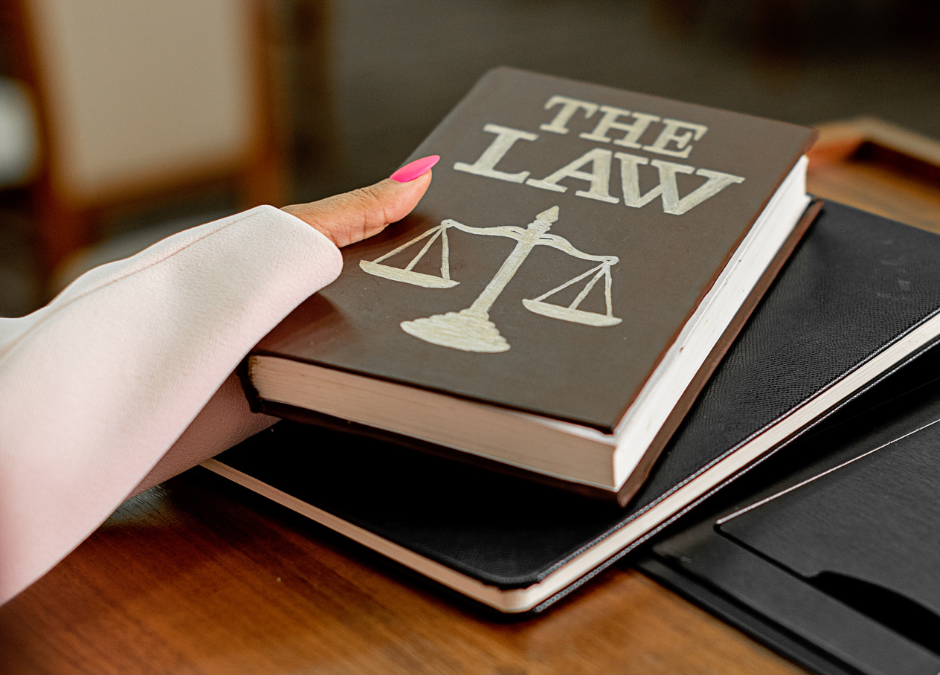
by Legalnaija | Nov 22, 2025 | Blawg, Book
The Nigerian legal landscape continues to evolve, and so does the literature that supports its practitioners. Whether you’re a seasoned litigator, a budding law student, or a client seeking clarity, the latest additions to the Legalnaija bookstore offer a rich blend of scholarship, practical guidance, and judicial insight. Here’s a curated roundup of new titles that every lawyer—and their clients—should know about on www.legalnaija.com/store.
Election Law Mastery:
– Arguments in Election Petition Appeals Volumes I & II
– Guide on Pre-Election Litigation: Principles, Practice & Procedure
– Principles, Proof and Practice of Grounds and Reliefs in Election Petition Litigation
– Arguments on Witness Statements, Forensic Expert Reports and Technicalities in Election Petition Proceedings
Law Practice and Procedure: Tools for the Courtroom Craftsman
– Law Practice Kit by Abdulrasheed Ibrahim
– Interlocutory Applications (4th Edition) by Ugochukwu Mike Mgbeahuru
– Law of Injunctions (8th Edition) by G. S. Gupta
– Marriage and Divorce Law by Emeka Chianu
– Advocacy Law and Practice in Nigeria by Anselm Uchechukwu Abonyi, Ph.D & Chidimma Stella Nwakoby, Ph.D
Rights and Constitutional Law: Defending Liberties
– Fundamental Rights (Enforcement Procedure) Rules, 2009 Volumes 1 & 2 by Chief Ogwu J. Onoja, SAN
Digital and Technology Law: Navigating the New Frontier
– Digital Rights in Nigeria: Through the Cases
– Digital Investments: Law and Practice by Uchechukwu Esther Oloworaran, Ph.D
Specialized Legal Fields: From Airspace to Operating Rooms
– Aviation Law by Callistus E. Uwakwe
– Forensic Law in Nigeria by Oluwatomi A. Ajayi
– Medical Law and Ethics in Nigeria by Festus O. Emiri
– Practical Approach to Labour Law in Nigeria by Kehinde H. Bamiiwola
Maritime Law Publications: Anchored in Practice
– The Maritime Newsletter Volumes One & Two
Bonus Picks from the Shelf
– MATRIMONIAL CAUSES IN NIGERIA – LAW AND PRACTICE by Nasiru Tijani, PhD
– Juvenile Justice Administration in Nigeria by Nneka Umejiaku, Ph.D
– Nigerian Telecommunications Law and Regulation by Quasim Odunmbaku & Rotimi Akapo
– Corporate Governance in Nigeria: Law & Practice by Fabian Ajogwu, SAN
– Nigerian Courtroom Canon by Levi I. Shaapera, Esq.
– A Compendium of Nigerian Tax Cases by Prof. Abiola Sanni
– Contemporary Banking Law and Practice by Sam Chukwuka Onyeka, Ph.D
– Readings on Election Security Management edited by Solomon Ehigiator Arase
– Issues in Kidnapping Trials by Kelechi P. Ikoroha
These new titles are more than just books—they’re strategic assets for lawyers seeking to sharpen their practice, deepen their knowledge, and better serve their clients. Whether you’re preparing for trial, advising on policy, or mentoring the next generation of legal minds, the Nigerian Bookstore has something transformative waiting for you.
Stay informed. Stay empowered. Stay ahead.
Visit www.legalnaija.com/store
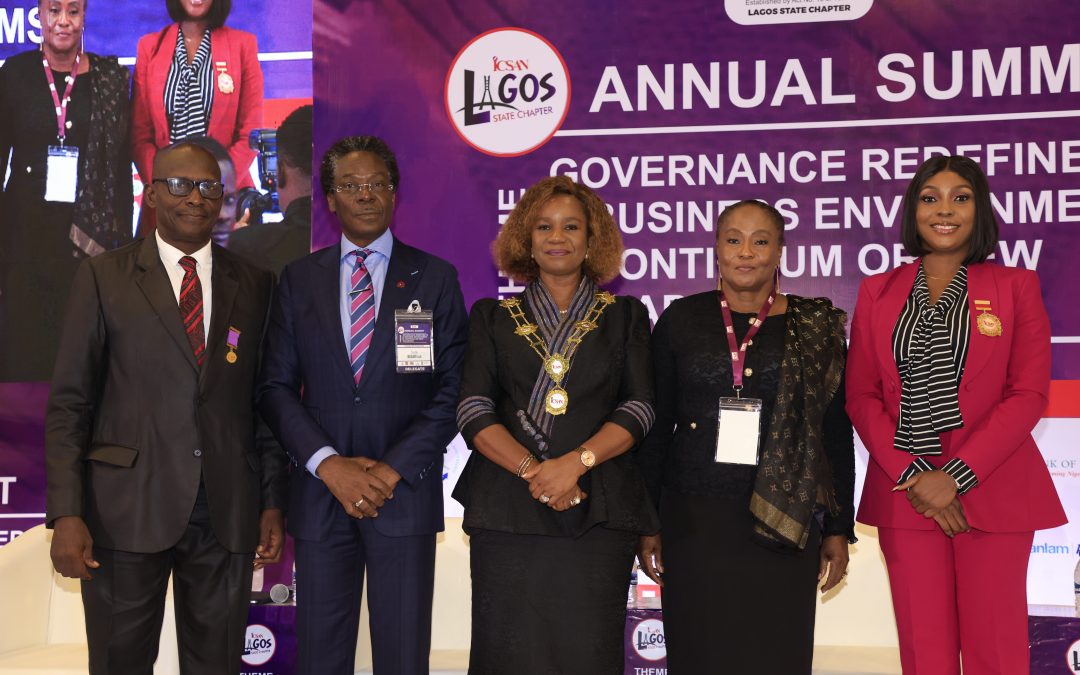
by Legalnaija | Nov 19, 2025 | Blawg
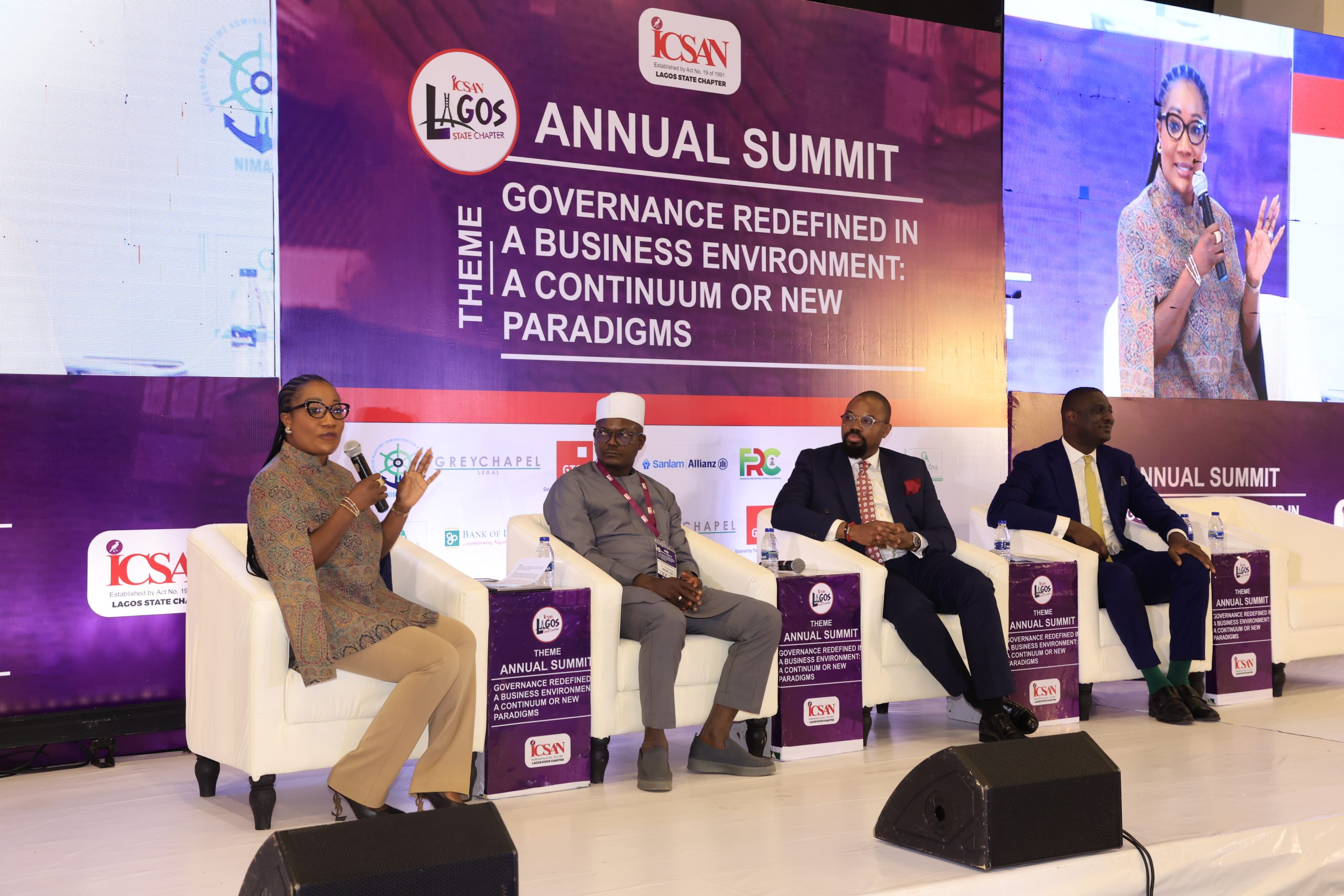
On October 30, 2025, the Institute of Chartered Secretaries and Administrators of Nigeria (ICSAN), Lagos State Chapter, hosted its Annual Summit at The Jewel Aeida, Lekki Phase 1. With the theme “Governance Redefined in a Business Environment: A Continuum or New Paradigm,” the event brought together thought leaders across governance, cybersecurity, finance, law, and technology to explore the evolving landscape of corporate leadership in a digitally disrupted world.
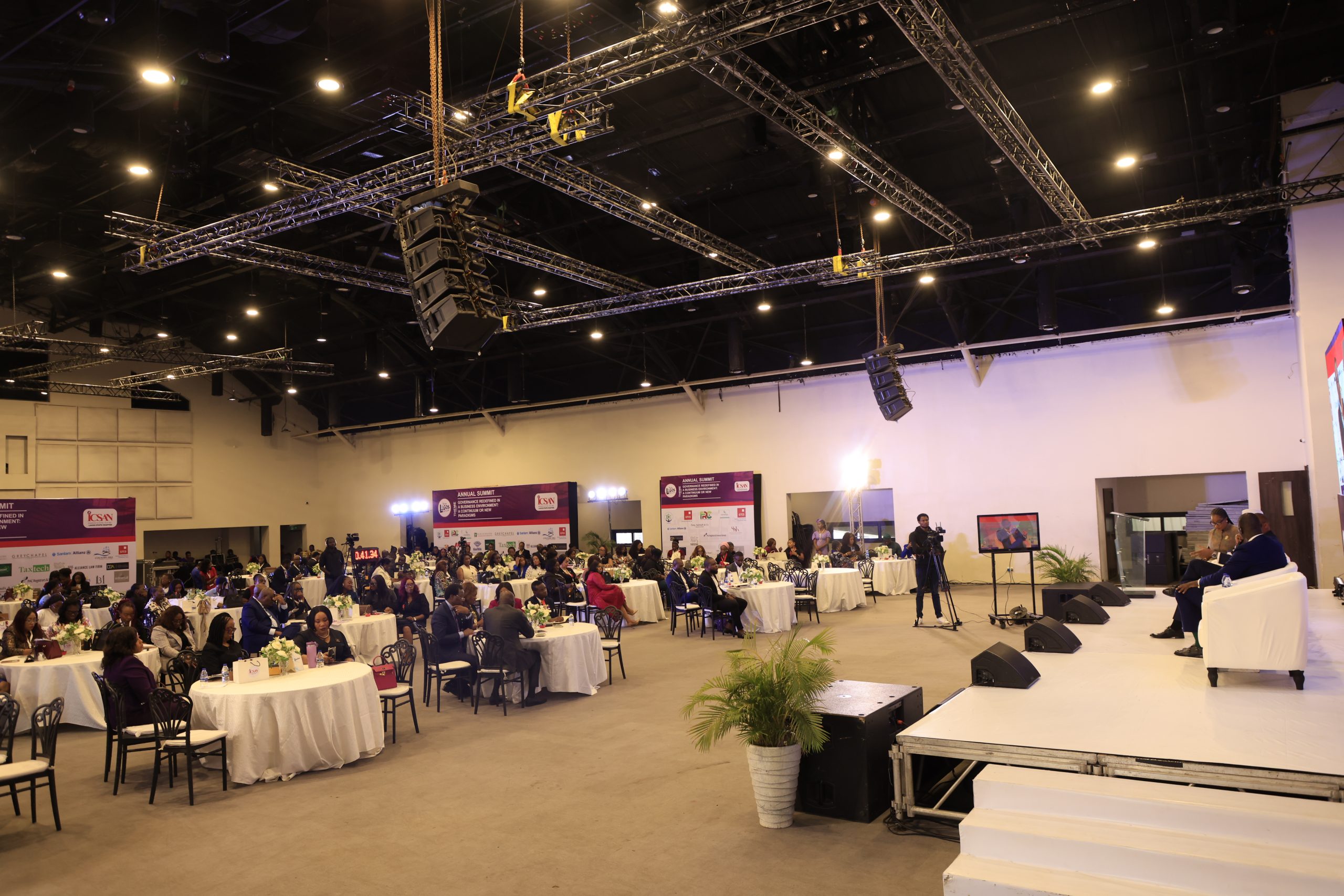
The Summit aimed to:
- Elevate cybersecurity as a board-level governance priority.
- Promote proactive digital resilience and ethical accountability.
- Address emerging risks from AI and advanced technologies.
- Align Nigerian governance practices with global standards.
- Translate ethics into measurable governance frameworks.
Ms. Efosa Ewere, FCIS, Chairman of ICSAN Lagos Chapter, welcomed participants with a call to embrace governance as a strategic value driver. Mrs. Uto Ukpanah, FCIS, ICSAN President, emphasized the Summit’s role in advancing transparency and professional excellence. Representing the Summit Chairman, Dr. Dayo Mobereola, Mrs. Mineks highlighted the urgency of adaptive governance in the face of digital transformation and shifting stakeholder expectations.
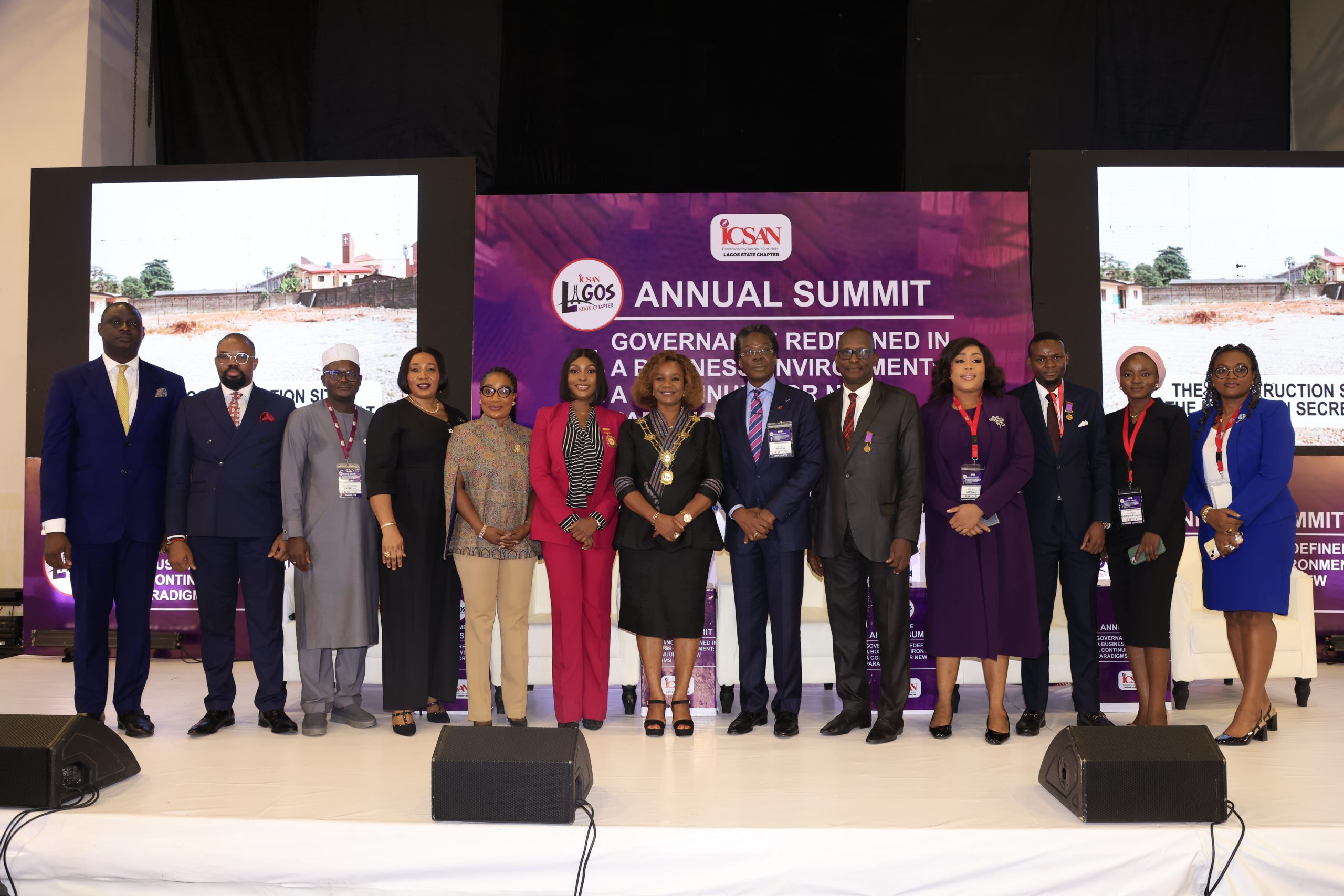
Keynote: Governance as Value Creation
Prof. Yinka Omorogbe delivered a powerful keynote, tracing governance’s evolution from compliance to strategic leadership. He stressed that modern governance is shaped by ethics, culture, and stakeholder trust—not just rules. He called for stronger enforcement, ethical leadership, and national renewal through transparent governance.
Plenary Session I: Bridging Compliance and Strategy
Moderated by Kunle Olusanya, the panel explored governance as a tool for sustainable value and competitiveness. Key takeaways included:
- The strategic role of Company Secretaries.
- Governance investment during economic downturns.
- Sector-specific frameworks like Nigeria’s electricity code.
- ESG, cybersecurity, and AI oversight as rising priorities.
Dr. Abubaka Rasaq of FRCN shared practical sustainability initiatives, including solar adoption, shared mobility, and employee wellbeing programs.
Plenary Session II: Adaptive Governance in the Age of Disruption
Led by Biverly Agbakoba-Onyejianya, this session tackled the intersection of AI, cybersecurity, and corporate structures. Highlights included:
- Cybersecurity as a governance imperative.
- Board-level crisis readiness and digital trust capital.
- Ethical deployment of AI and data privacy safeguards.
- Inclusion of younger professionals on boards based on competence.
- Positioning Data Protection Officers at management level.
Speakers urged Nigerian institutions to build cyber-skill capacity and prepare for evolving AI regulations.
Engagement and Reflections
Participants actively engaged panelists with questions on sustainability, SME cybersecurity awareness, and board inclusion. The Summit concluded with a reaffirmation of governance as both legacy and innovation—anchored in ethics, transparency, and resilience.
The ICSAN Lagos Summit was more than a conference—it was a clarion call for governance professionals to lead with integrity, embrace innovation, and build resilient institutions for Nigeria’s future. As delegates departed, they carried with them renewed resolve to champion best practices and drive sustainable national development.
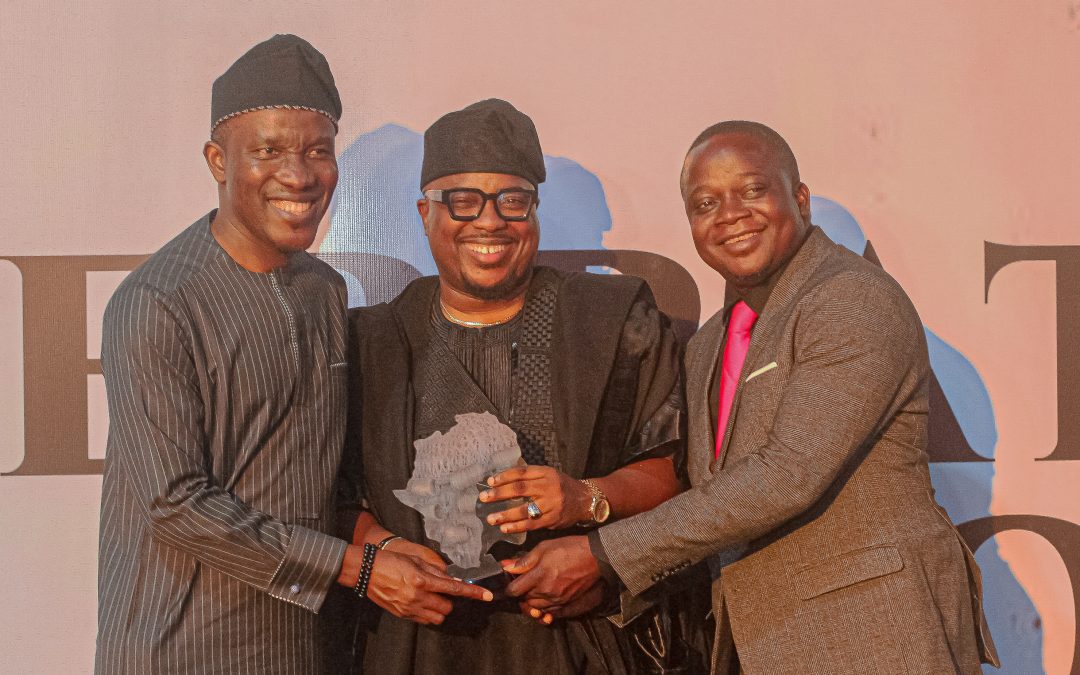
by Legalnaija | Nov 10, 2025 | Blawg
Lagos, Nigeria — November 10, 2025
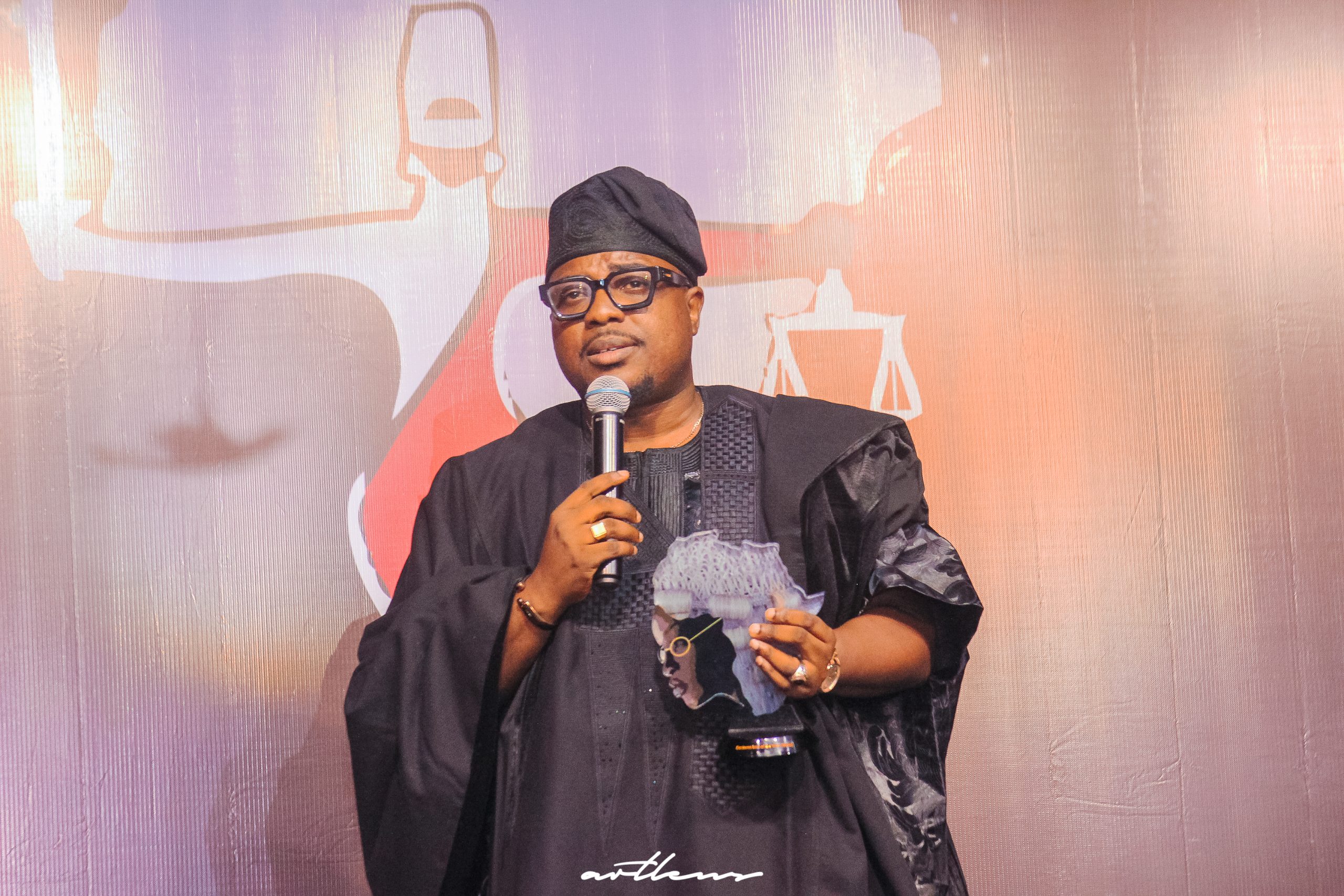
Dr Tolu Aderemi accepted the Business Law Advocates Award at the Nigerian Legal Awards on 9 November 2025 and rededicated the honour to young lawyers, with particular emphasis on members of the Nigerian Bar Association Lagos Branch. “I accept this award on behalf of the rising generation of lawyers, especially those of the Lagos Branch, whose energy and ambition will define the future of our Bar,” he said.
Aderemi said entrepreneurship and the business realities of legal practice are not sufficiently taught in universities and at the Nigerian Law School. “Too many graduates leave our faculties with superb legal knowledge but little preparation for running or growing a modern legal practice,” he said. “This education gap helps explain why entrepreneurial skills are not widespread among lawyers today.”
To address that gap he announced the Tolu Aderemi Mentorship and Empowerment Programme TAME in partnership with Lawlexis. The programme is scheduled to begin in the first quarter of next year and will provide training in the business of law, mentorship and exposure to commercial practice.
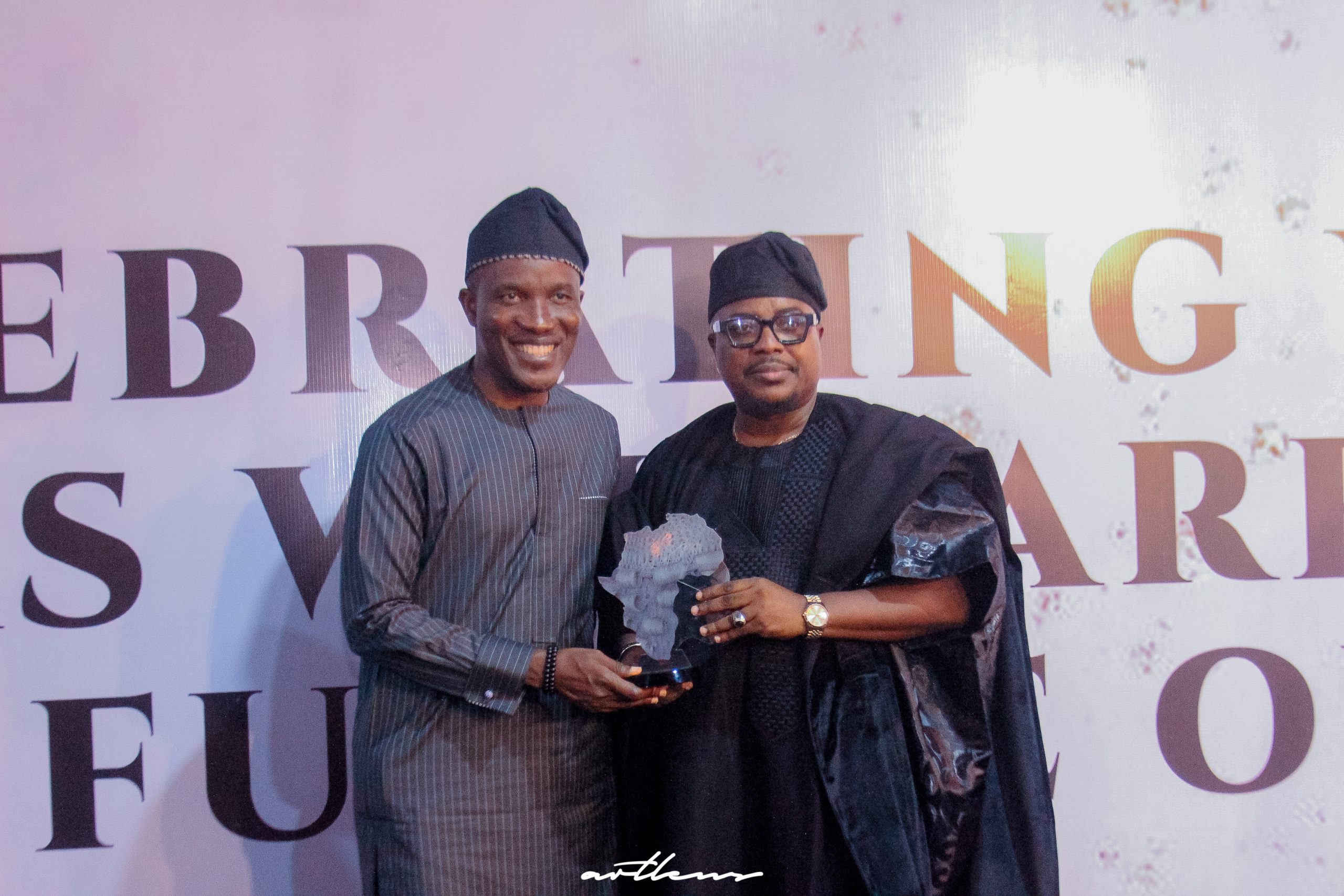
The event opened with remarks by Kamal Shah, Senior Partner at Stephenson Harwood UK, who commended the depth of legal practice in Nigeria and across Africa. The keynote address was delivered by Pastor Godman Akinlabi, Global lead pastor of the Elevation Church, who challenged lawyers to lead by example, not aid and abet corruption, and to leave a lasting legacy.
Organiser Lere Fashola gave welcome remarks in which he commended the legal community for the work it is doing and congratulated all the awardees, including Dr Aderemi, for lifting the legal profession bar high. The announcement of TAME was met with approval from attendees who described it as a timely intervention to bridge the gap between academic training and the commercial demands of modern practice.
